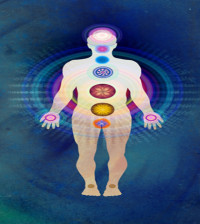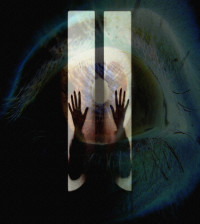- 5 Tips To Finding Peace Within Yourself
- The Do’s and Don’ts of Learning How to Accept Yourself
- How to Find Your Inner Peace and Transform Your Life
- 8 Benefits of Having an Open Mind and How to Get One
- Learn How To Be A Happier Person
- What Is The Meaning Of Life?
- Laws of Abundance – The Riches of Love and Joy
- How to Be Laid Back By Following These 9 Simple Strategies
- The meaning of confucius’ golden rule – 4 practical ways of living it
- 3 methods of unleashing the power of contentment in your life
How to Treat Anxiety Three Different Ways

Choose between medicine, counseling or the DIY method
Anxiety, sometimes called angst, is what causes you to feel afraid, worried or uneasy. Although it is a normal reaction to something that causes stress, there are three different ways to treat anxiety when it gets out of hand and becomes a disorder. The generally accepted ways of treating anxiety are by medication, counseling and self-treatment.
What doctors prescribe
Of the three different ways to treat anxiety, medication is the most prevalent, especially in developed countries like the USA. The main classes of drugs used to treat anxiety are:
➢ Benzodiazepines – A psychoactive drug, it enhances the effect of the neurotransmitter GABA-A and has sedative, hypnotic, anti-anxiety and muscle-relaxing properties.
➢ Anti-depressants – This class of drugs are primarily to treat depression. However, the compounds known as serotonin-specific reuptake inhibitors (SSRI) are also widely used to treat anxiety.
➢ Tricyclic antidepressants – An older type of antidepressant, TCAs have been largely replaced by SSRIs. Developed primarily to treat depression, they are also used to deal with a variety of anxiety disorders, eating disorders like bulimia and personality disorders such as ADHD.
➢ Beta-blockers – This class of drugs weakens the effects of stress hormones on beta receptors, hence the name of the category. Although not approved by the US FDA for anti-anxiety treatment, clinical trials have shown that they are effective in treating anxiety disorders [comma] especially by reducing the physiological symptoms of the “fight-or-flight” response to stress.
Fixing up your mind
An alternative approach to treating anxiety is by changing the way you think. Anxiety comes from thoughts and how one looks at things. Psychotherapy (or therapy for short) involves talking to a trained mental health professional to identify what causes the anxiety and then helping the patient work through it. There are several types of psychotherapy.
➢ Cognitive Behavioral Therapy – CBT attempts to identify what causes the anxiety and tries to change a person’s behavior patterns. The treatment involves the patient who needs to read about the problem, keep records between sessions, do homework and learn skills that must be regularly practiced.
➢ Exposure Therapy – A type of CBT, this treatment exposes the patient to what he or she fears in order to become gradually de-sensitized.
➢ Acceptance and Commitment Therapy – ACT teaches the patient skills to “live in the moment”, accept experiences without judgement, look at things differently and undergo behavior change to cope with unwanted thoughts and feelings.
Other types of psychotherapy used to treat anxiety are Dialectical Behavioral Therapy (DBT), Interpersonal Therapy (IPT) and Eye Movement Desensitization and Reprocessing (EMDR).
Do it yourself
Still another way to treat anxiety is by self-treatment using complementary and alternative treatment methods. If the nature of the anxiety justifies it, here are some methods you can try yourself.
➢ Relaxation techniques – Applied relaxation involves learning how to relax your muscles. Taught by a trained therapist, you can learn how to relax your muscles quickly and in response to a prompt or trigger. This way, you can relax your muscles whenever you feel anxious.
➢ Meditation – The deep abdominal focused breathing of mindfulness meditation, as well as the ability to observe your own body and its reactions, can help you release tension and erase unwanted thoughts. Another meditation technique is the use of sound to raise your energy level and reduce anxiety.
Other self-treatment methods are Massage therapy; Art, Music and Dance therapy; Homeopathic or naturopathic medicines and natural products; Treatments for fibromyalgia; and Biofield therapy.
Becoming familiar with the three different ways to treat anxiety can help you find out which one works best for you.








































You must be logged in to post a comment Login